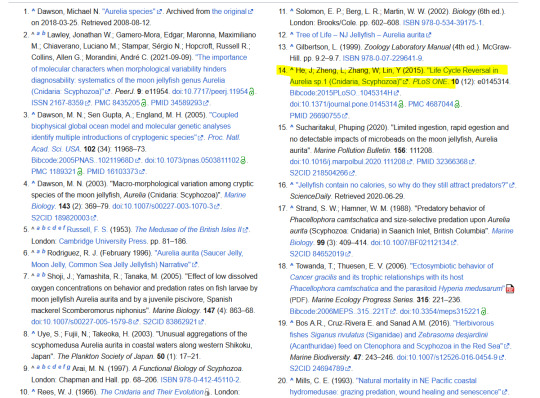#anyway can't recommend enough going to the different language pages for Wikipedia
Note
Does the Japanese production move around like a tour or is it usually in the one place? I noticed the Japanese production website says final performance in August but also that it’s been there since 1988. Thanks!
The word I've always used for the Japanese production is "sit-down tour". A "sit-down production" is one that stays in the same place, like the Broadway production of Phantom, but also like the ones that were in Los Angeles from 1989-1993, Chicago from 1990-1994, San Francisco from 1993-1999, and I suppose even the Las Vegas version from 2006-2012. A "tour", as you might expect, moves from location to location, like the roving US tours, the UK tours, the World Tours, and so on.
Now why do I combine the two terms for the Japanese production? Because the way the Japanese production works is that it opens in a city in Japan, say Tokyo, and stays there the entire duration of its run, which is usually about 1 to 2 years. It then closes for a year or so before opening again, sometimes in the same city but a different theater but just as often in a different city, like Osaka, Sapporo, Yokohama. It will then stay at that theater or city for another 1 to 2 years, close down, move elsewhere, rinse, repeat. So it's both a tour, because it does move around the country... but also a sit-down, because whenever it opens, it stays in that location.
(Incidentally, this is why the Japanese production "only" hit 8000 performances even though it's been running since 1988, almost the same amount of time as the Broadway production, which was about to hit 14,000 performances when it closed. The Japanese production does not run continuously, but starts up, stops for a time, then starts again, over and over.)
If you want a very nice, constantly updated list of all the production's past, present, and future stops, I highly recommend this part of the Japanese Wikipedia's page on the musical! It includes, as far as I know, the start and end dates, locations, and any other pertinent info for every stop the Japanese production has ever made, as well as letting you know when the current production will end (August 27, 2023) and when the production will open next (April 2024). Obviously it's all in Japanese, but hey, that's what Google Translate is for!
So there you have it!
#GP gets asks#anonymous#in retrospect it helped to know minimal Chinese for this#the characters for month and day are the same in Chinese and Japanese so I knew what I was looking at when I saw that list#anyway can't recommend enough going to the different language pages for Wikipedia#you find a huge amount of info sometimes that's not on the English language page
14 notes
·
View notes
Note
Hi!!! I love your account with all of its fabulous jellyfish information. And I wanted to know, where are you getting aforementioned fabulous jellyfish information? Is there a book or a website or documentary or smth? Do you have any recommendations?
Tysm and I CANT WAIT for the advanced quiz :DD
Oh!! I'm glad you enjoy it ^-^
I get my jellyfish research from a variety of places, actually. But since I'm kind of obsessed with collecting my information in one place, asks like these are my cup of tea :)
My main source of jellyfish lore comes from Wikipedia. Just like the legendary Hank Green, I ended up downloading Firefox's tree-tab extension so I can organize the tabs by natural taxonomic order. It's really quite relaxing, actually.

Wikipedia, understandably, isn't always the best source though (Take the pages for Cephea cephea and Atolla wyvillei for example. The Cephea cephea page is almost entirely blatant misinformation while the Atolla wyvillei contains an incorrect and misleading throwaway line)
That's why the next logical step is simple- Wikipedia references! This serves as a beginning into further jellyfish research.
Let's take the reference page for the Aurelia aurita, for example:

The information citing citation 14 was super interesting, so I pulled it up on another tab to read it, and got this:
Then I just had a field day reading it all.
One big site that's used as a reference on Wikipedia is humorously named WorMS (World Registry of Marine Species), which goes into the specific classification of pretty much every jellyfish taxon (it is very. VERY comprehensive).
It'll tell you how many species are in a genus, what scientific name has become synonomized with another, and even link to the original documents that describe the species (though they may be written in a different language and come in a scan- so tough luck if you don't understand the language since um... it's pretty hard to translate a scan).
Eventually that wasn't enough, though, so I branched out into searching scientific articles myself.
My personal favourite website to do this on is ResearchGate, since the UI is the easiest for me to use, but I get plenty of research from other sites and publishers. (And pssst, if you can't access papers through a school or an institution, there's always sci-hub and libgen 😉)
The rest just depends on to how savvy you are with google. I despise normal reporting articles on jellyfish (Most can't tell the difference between them anyways), so I skip those and simply go to the jellyfish papers themselves lol. I've found out a lot of interesting things about jellyfish just by searching random questions on google.
Um, but I suppose I do have extra stuff to add.
Apparently, making a video game for jellyfish is a surefire way to learn more about them (especially when you write them as sapient beings lol). You start to crave niche, specific knowledge of them- like um... If they sleep or not, or what things can make them sleep.
Um... Another thing I've learned about jellyfish? The japanese are absolutely OBSESSED with their jellyfish. Their jellyfish spotlight sites are incredibly detailed (if not a bit region-specific), and I honestly trust them more than I trust our English-speaking sites.
In particular, I adore kurage-ya.com and gogo zoo aquarium, though you definitely will not be able to read anything unless you have a good translator (Kurage-ya is written in such an adorable voice.... and gogo zoo is incredibly detailed. I suggest going onto both for full coverage of your jellyfish knowledge, though)
(I also suggest going on different languages of Wikipedia- you can learn SO much stuff that normal Wikipedia doesn't give to you. Like the Chrysaora pacifica and Nemophilema nomurai have more robust Japanese pages, and the Spanish page for Order Semaeostomeae is a lot more beefed up, haha...)
To learn more about niche jellyfish facts, I also suggest looking through jellyfish husbandry sites (Especially jellyfish warehouse- travis knows so much more about jellyfish than I do it's actually pretty crazy).
As for Jellyfish documentaries? I only know of a few good ones, but I'll list them here:
youtube
youtube
youtube
youtube
^^ (not a documentary, but the jellyfish warehouse is friggin awesome and they even have a youtube channel)
Umm... So yeah that's pretty much all the things I got for free.
I think any jellyfan would suggest Lisa-Ann Gerswhin's book, Jellyfish: A Natural History.

I'm pretty sure you can find it in any major bookstore or whatever (online, at least), but it goes super in-depth about pretty much everything you need to know about jellyfish.
She goes SUPER in-depth about things like jellyfish life cycle, jellyfish anatomy, jellyfish ecology- and SO, SO MUCH MORE. She doesn't stay in Phylum Cnidaria, either, branching out into Ctenophora and even Chorodata(?) (Since Salps/tunicates are also there ig).
If you want to learn about specific jellyfish species, however, I would honestly just stick to Google and write it yourself. She only highlights about 40 different jellyfish species, and only mentions the textually relevant things in their bio.
I would use the book just to learn about jellyfish basics, tbh (since it primes you to learn about the more technical jellyfish language you'll inevitably encounter in jellyfish articles).
Overall, though, Lisa-Ann Gershwin's book is incredibly detailed, in-depth, and gorgeous and I could not recommend it more to anyone.
Other than that tho? All the English jellyfish books kinda suck, and I'm seriously considering branching out to japanese books instead (There's one that focuses on 114 species of jellyfish and you can bet your manus that I'm salivating over it rn i am enamoured with Japanese jellyfish culture)
Erm... Anyways?
TLDR;
Wikipedia is a good place to start. Reading Published Scientific articles is where you can get the bulk of your information, but Jellyfish-dedicated Websites will also be pretty knowledgeable as well.
There are a choice few Youtube documentaries you can watch, but if you want to read an actual book, Jellyfish: A Natural History is your best bet.
#and I'm SO glad you enjoy the jellyfish quizzes lol I was afraid they would be too hard for most people#The expert quiz is very fun actually I am having a blast designing it#long post#sorry for the long ramble lol i absolutely love talking about jellyfish#just this morning I was curious about how heavy metals affected the phacellophora camtschatica/egg yolk jelly (don't ask) and ended up lea-#-rning about the 4 OTHER possible cryptic species that could be in the genus#also more specific physiological features of the jelly#which means I can draw them better he he he he he#jellyfish#anyways I hope you found this helpful and good luck with your jellyfish research ^-^#I pretty much became a comfortable jellyfish expert erm... 3 months with Wikipedia articles alone. So it's definitely possible to learn a -#-whole lot if you're dedicated to learning everything there is to know about jellyfish#i sold my soul to jellyfish and i have never been happier in my life#once my grandma found me at 4 am staring at my computer screen because i was researching jellyfish and she seriously questioned my sanity#hahaaaaaaaaaaaaaaaaaaaaaa#anyways I'll end it here but if you have any more questions i am more than happy to respond lol#mun rambles#ask
4 notes
·
View notes